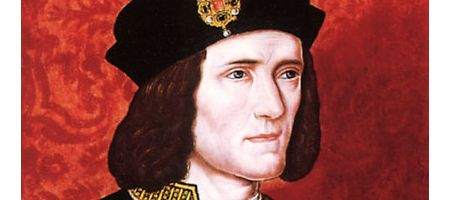British academics are denying a report by the Daily Telegraph that they have conclusive evidence that a body found beneath a Leicester parking lot is that of Richard III.

The university of Leicester is currently carrying out a genetic analysis, comparing DNA from the skeleton with that of a known, living relative of the king: Michael Ibsen, a descendant of the king’s sister Anne.
On Saturday, the Telegraph reported that the team had ‘additional evidence not revealed at a major press conference’ that demonstrated beyond reasonable doubt that the bones were indeed Richard III’s.
But, says the university, “The University of Leicester did not withhold any ‘additional evidence’ at its press conference in September and the Daily Telegraph was unable to tell us what that evidence was either.”
Having said that, the identification of Briatain’s last Plantagenet king is looking pretty definite, even without the DNA evidence. The skeleton shows a twist in the spine that corresponds perfectly with contemporary accounts of Richard III, and has an arrow in its back.
The skeleton was uncovered in September, after the parking lot was identified as the probable site of the church of Greyfriars, where the King was said to have been buried after his defeat in the Battle of Bosworth in 1485.
The University says that it believes the bones are the real thing, but that the results of its investigations are expected early in the New Year.
“These tests have to be rigorous and thorough and we are currently awaiting the results of the tests that we have already outlined,” it says. “We are yet to find strong evidence to challenge our original hypothesis but emphasise that key tests (not just DNA tests) are incomplete.”
Richard III has had a bad press over the centuries. Shakespeare depicted him as a monster, and he’s been widely described as being responsible for the death of the two sons of Edward IV. With the discovery of the bones, though, he’s likely to get a bit of rehabilitation, with academics pointing out that there’s actually very little evidence of his famed misdeeds.






